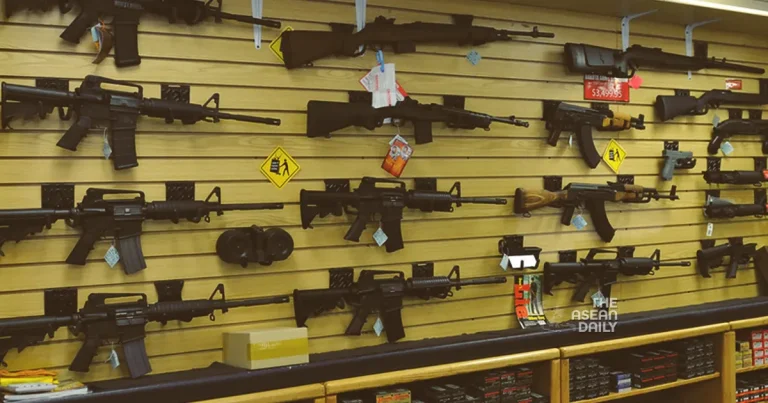29-10-2023 (WASHINGTON) The US Commerce Department has taken a significant step by temporarily suspending exports of most US-made firearms to Thailand and other major international markets for a period of 90 days. This decision is part of a comprehensive review to ensure that these exports do not undermine US policy interests. The consequences of this action have the potential to put a brake on two decades of relentless growth in international gun sales.
The successful strategies employed by the US gun industry to bolster global sales, coupled with supportive US policies, have been under intense scrutiny during a meticulous investigation conducted by Bloomberg over the past few months.
The probe commenced in July with a close examination of gun sales to Thailand. This country experienced one of the world’s worst mass killings last year, where a former police officer tragically took the lives of 35 people, including 22 children (the majority of whom were stabbed) at a nursery in Nong Bua Lam Phu. Shockingly, the weapon used by the assailant, the Sig Sauer P365, was one of an increasing number of semiautomatic handguns and rifles exported by American gun manufacturers and associated with violent crimes, as revealed by the investigation.
Thailand has notably been the largest market globally for US-made semiautomatic firearms. The investigation’s findings spanning from 2005 to 2022 show that a staggering 795,000 such firearms were exported from the United States to Thailand, constituting 21.5% of the global total of 3.7 million.
Furthermore, the investigation sheds light on how Sig Sauer secured two contracts with the Royal Thai Police for a combined total of 400,000 guns, all part of the “welfare guns” program, which makes discounted weapons available to individual police officers and other state officials. The sheer volume of these orders has spawned a new “asset class” of guns for trading and investment, with thousands of welfare guns resold for profit amid insufficient oversight.
A previous report published on October 19 delved into the substantial support provided by the Commerce Department to the SHOT (Shooting, Hunting, Outdoor Trade) Show. This support included steering over 3,200 international buyers to the event this year.
On Friday, the Commerce Department made the announcement to halt the approval of new export licenses for semiautomatic and non-automatic firearms sold to non-governmental entities worldwide. This pause excludes countries such as Israel, Ukraine, and approximately 40 others that participate in a multilateral export-control agreement with the US. However, it applies to some of the most prominent markets for American gun manufacturers, including Thailand, Brazil, and Guatemala, where the Bloomberg investigation has documented the impact of US government assistance for these companies.
In an official statement, the Department explained, “The review will be conducted with urgency and will enable the Department to more effectively assess and mitigate the risk of firearms being diverted to entities or activities that promote regional instability, violate human rights, or fuel criminal activities.”
While the department has not specified the long-term changes it intends to make, this review has the potential to amend or even reverse a set of notably pro-industry policies that have aided domestic manufacturers in expanding their sales overseas. This includes the significant shift in 2020 of the oversight of most commercial gun exports from the State Department to the business-friendly Department of Commerce and the unwavering support for the SHOT Show, a firearms marketing expo held annually in Las Vegas.
Just two decades ago, the US had limited international gun sales, but as domestic manufacturers sought new markets, the sales of rapid-fire and military-style firearms have escalated rapidly, reaching a total of over 3.7 million sold since 2005. Many of these firearms find their way to countries grappling with surging gun crime, while others end up in the hands of authoritarian regimes, often with the backing of both Democratic and Republican presidents. Recently, some Democrats in Congress have voiced growing concerns and criticisms of these sales.




